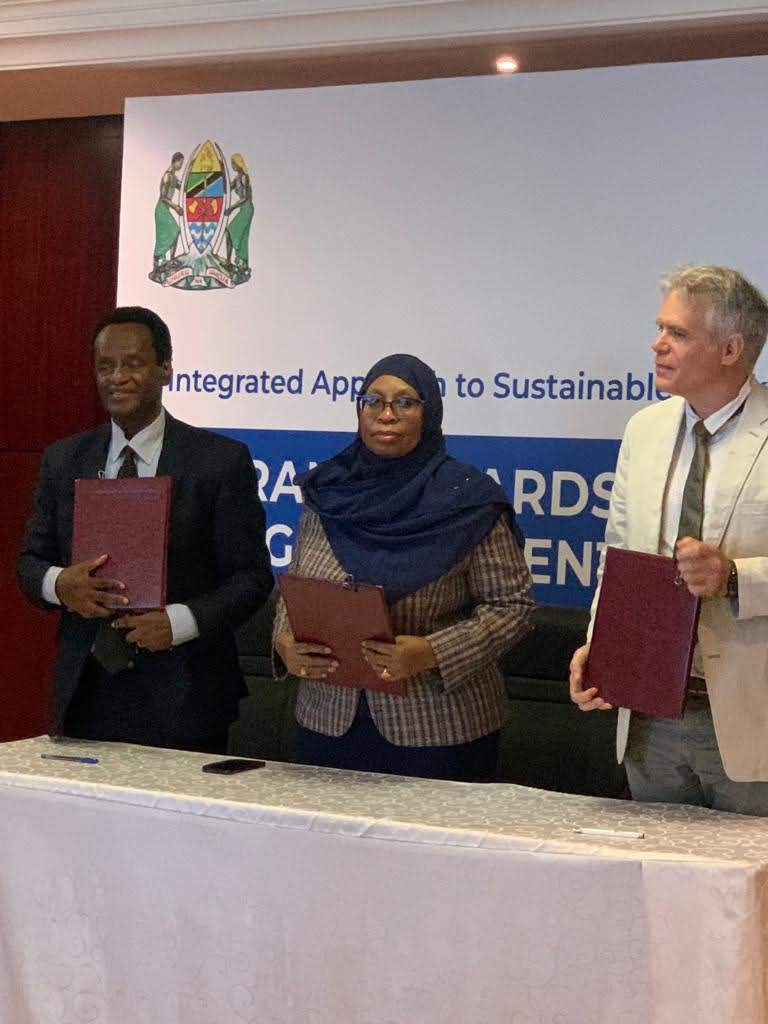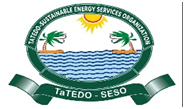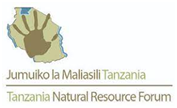Integrated Sustainable Charcoal Value Chain Promotion Project (ISU-CHAVPRO)
- Category: Projects
- Published: Thursday, 01 February 2024 13:48
- Written by Webmaster
- Hits: 1086
1.0 Introduction
Rapid urbanization,high relative prices, scarcity, or unavailability of alternative fuels have led to a rise in demand of charcoal. Pwani Region is among the main sources of  charcoal consumed in Dar es Salaam. Most of the charcoal is sourced from natural forests, unprotected village lands and farmlands.
charcoal consumed in Dar es Salaam. Most of the charcoal is sourced from natural forests, unprotected village lands and farmlands.
Sustainable forest management, harvesting, use of improved technologies for charcoal production is limited and charcoal business is mostly conducted informally leading to deforestation and forest degradation.
Despite the challenges, charcoal business remains one of the most important sources of revenue for local communities and governments. Capacity of local communities to sustainably manage and benefit from forests is limited.
This poses a challenge of how to sustain livelihoods of local communities, revenue for local government and central government while ensuring sustainability of forest resources.
2.0 The Project
“Integrated Sustainable Charcoal Value Chain Promotion Project”is one of the projects supported by the Government and funded by the European Union under the Programme Integrated Approach to Sustainable Cooking Solutions.
2.1Project Overall Objective is to demonstrate and promote effective and efficient integrated approaches for improvement of sustainable forest management and charcoal production in rural areas with the view to increase environmental and charcoal value chain sustainability while promoting socio - economic development.
2.2 Specific Objective is to improve capacities and commitments by local communities in five districts in Pwani Region to improve productivity along the charcoal value chain, sustainably manage forests and improve their socio - economic well being.
2.3 Project Location is in Bagamoyo, Kisarawe, Mkuranga, Kibiti and Rufiji districts inPwani Region
2.4 Contracting Authority is the National Authorizing Officer for the European Development Fund (EDF), Ministry of Finance of the United Republic of Tanzania
2.5 Implementers are TaTEDO - Sustainable Energy Services Organization (TaTEDO - SESO) and Tanzania Natural Resources Forum (TNRF)
2.6 Project associates: Rufiji, Kibiti, Mkuranga, Kisarawe and Bagamoyo District Councils.
2.7 Project Period is 36 months from October 2023
2.8 Target groups
- Actors along charcoal value chain (charcoal producers, transporters, traders)
- Village Natural Resources Committees (VNRCs) in the project area
- Civil Society Organizations (CSOs)and Community Based organizations (CBOs)
- Institutions in the action areas (Primary and Secondary Schools)
- Village community including women, youth &income generating groups
- Farmers in action area
- District authority collaborating in implementation of the action
2.9 Final beneficiaries
- Fifty (50)Village governments where project is implemented.
- Pwani Region and district Council of Bagamoyo, Kisarawe, Mkuranga, Kibiti and Rufiji.
- Central Government – President Office Regional Administration and Local Government (PORALG), Ministry and Natural Resources and Tourism (MNRT), Tanzania Forest Service (TFS), Vice President Office (VPO), Ministry of Energy (MoE), Ministry of Finance (MoF), Tanzania Revenue Authority (TRA).
- Members of Parliament.
2.10 Project Expected Results
- Policy and legal framework governing charcoal sub-sector improved and implemented.
- Village land and forest sustainably managed.
- Productivity in charcoal production in the action areas increased.
- Charcoal business formalized and capacities of the value chain actors improved
- Alternative livelihoods that support sustainable forest management increased
- Gender mainstreamed and interests of vulnerable groups protected
Implementation of the project will contribute to strengthened legal and institutional frameworks for sustainable forest management,reduced amount of biomass used for cooking, thereby leading to reduced Greenhouse Gas (GHG) emissions from deforestation and forest degradation.The Project contributes to the United Nations Agenda 2030 for Sustainable Development and the Paris Climate Change Agreement.
 |
 |
 |
 |

